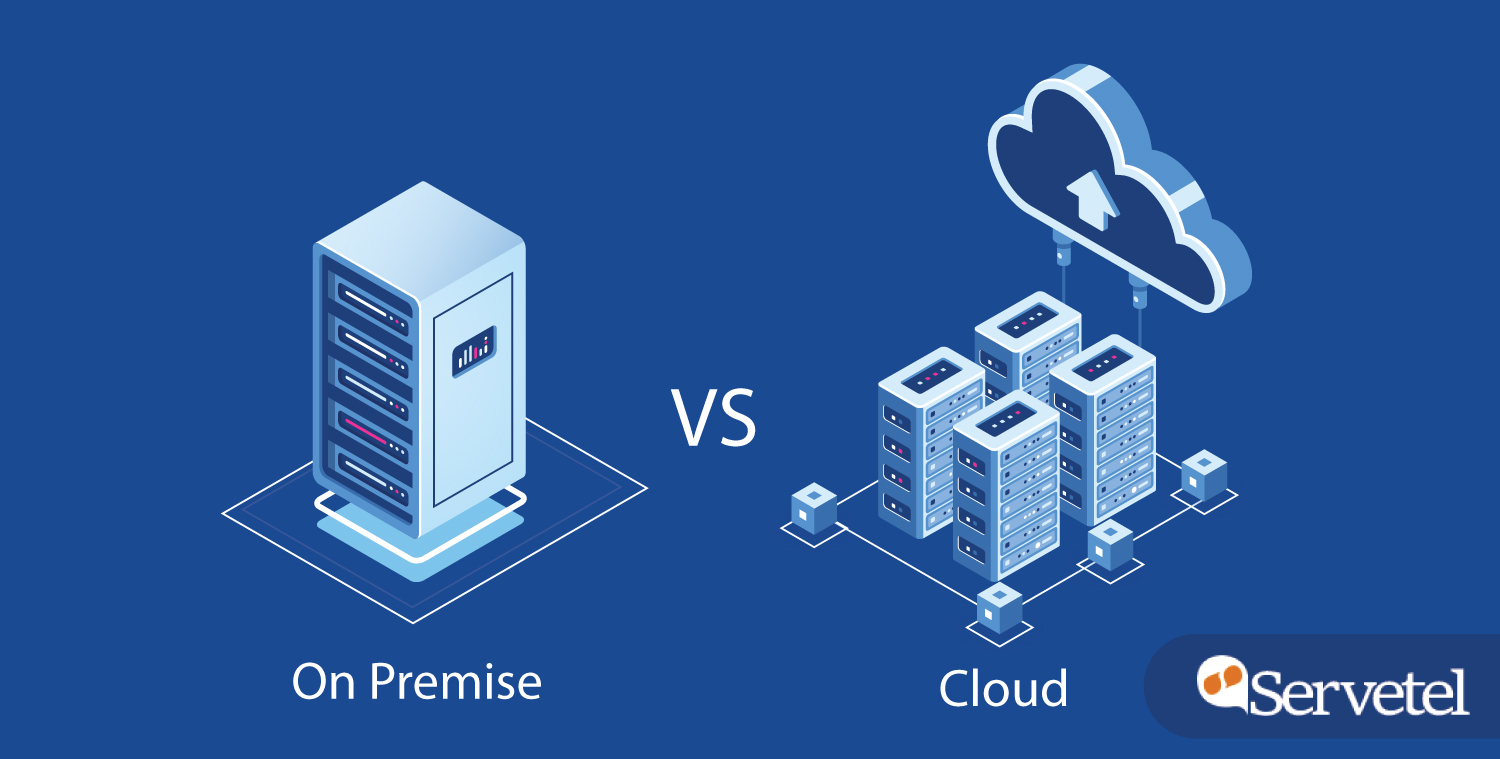Communication is the cornerstone of any business, regardless of its size, scale, and domain.
If you have a robust communication infrastructure in place, you can stay connected with your customers, partners, and vendors at all times. Further, it also empowers your organisation with better in-house processes; it facilitates seamless communication within teams and helps customer-facing interactions.
While most companies do it the old-fashioned way with traditional on-premise systems, many are ready to move ahead. The COVID-19 pandemic has only accelerated this transition.
If you are yet to switch, you must understand the advantages and disadvantages of both on-premise and cloud-hosted systems.
Choosing the right one can cut down not just the cost, but also the effort. And, make your business communication more fluid. Let us discuss both in detail and answer all the questions you may have in this context.
What is an on-premise telephony system?
An on-premise telephony system, as the name implies, is installed physically on your business premise.
It can include both hardware and software components. For example, the physical wires that connect employee desk phones to the office data centre are a part of an on-premise system.
Similarly, Internet connection in the case of IP technology, also come under the same category. The distinctive factor is that the system lies inside the physical workspace of the company.
On-premise systems, however, can burn a hole in your pocket. They require equipment and a dedicated space in your office.
Furthermore, maintenance expenses are inevitable too. Businesses often need an in-house IT team or outsourced service provider to keep the system up and running and extend troubleshooting assistance.
These additional expenses can be a burden for the organisation.
Another downside of on-premise phone systems is the lack of flexibility and portability. Agents will have to be physically present in the office to make calls. It means that remote agents can neither dial nor receive calls, which makes the system completely redundant in the prevailing era of remote work.
Let’s look at the other side of the coin—cloud telephony systems.
So, what is a cloud telephony system?
A cloud-based telephony system is hosted on the cloud instead of using physical infrastructure.
It offers a lot more freedom and flexibility as compared to the old-school setup. Since you pay only for the connections to be set up, cloud phone systems are much cheaper as well. Moreover, you can get it up and running quickly and easily.
The most significant differentiator between cloud and on-premise telephony systems is that the former supports remote teams.
Your team members can join in, receive and attend calls regardless of their location, as long as they have compatible compatible software on their devices. The best part is that you can run the system on your existing infrastructure without any specialised devices.
Cloud telephony definitely is the need of the hour because teams are working from home amid the pandemic. Your customer service and support agents need to be available and accessible, which is possible only with a system that operates on the cloud.
Why should you consider a hosted telephone system?
Now that you know what both telephone systems are about, it is easier to understand why you must give up the traditional infrastructure and opt for a cloud-based system instead. Here are the advantages that make it the better option:
- Upfront costs and maintenance- The setup costs and ongoing maintenance of cloud telephony are far lower than that of an on-premise system. You need not invest in expensive infrastructure, and neither do you require an IT team for keeping the system up and running. The entire responsibility is shouldered by the cloud service provider.
- Consistency and reliability- Hosted phone systems are more consistent and reliable than the traditional counterparts because they are managed by a professional service provider. They handle aspects such as general upkeep, maintenance, and security of your cloud phone system.
- Flexibility to support remote teams- A cloud telephony solution is flexible, making it ideal for distributed and remote teams. Employees can use their personal devices for work and receive calls on the business phone number. The callers will not even know that the agents are not in office.
How to choose the best telephony system for your business?
It is clear that cloud telephony systems are the need of the hour, but everything boils down to choosing the one that works for your business. Here are the criteria to bear in mind while picking the one that works for you.
- Budget- The choice between the systems depends on your budget. Both ways, you will have to spend an upfront cost along with a monthly service fee. But as mentioned earlier, cloud service is a lot cheaper than on-premise solutions. It eliminates the maintenance costs because they are covered by your provider remotely and you need not worry about repair and upgrade in the long run.
- Scalability– Cloud telephony offers the benefit of scalability, so you must opt for it if you have business expansion plans. With the system in place, you can create new accounts within minutes. So getting in new members isn’t a challenge for growing companies.
- Remote operations- This is one reason why on-premise is regarded as an obsolete system today. Almost every business needs to go remote right now as work from home becomes a norm amid the pandemic. You cannot expect the business to survive unless you have a system that lets your team communicate from home, and it is possible only if you move to the cloud.
- Control- If you expect to have complete control over your network, an on-premise solution is the best choice for you. Your telephony is inside your office, and your in-house IT team looks after it. For organisations with a more hands-off approach to managing and maintaining telephony, the cloud is the best option. You may not have complete control, but you have freedom and convenience.
How do you choose the provider you can rely on?
By now, you understand that moving to cloud telephony is no longer a choice for businesses today. At this point, it is crucial to pick the provider you can rely on. Here are the things you must bear in mind while collaborating with a provider.
- Look for someone who is reliable enough and provides uptime assurance despite the risks of outages and technical issues
- Choose one that extends 24×7 support so that you can access their assistance whenever you need it
- A provider that goes the extra mile with security protocol is an ideal
- Check features such as IVR, call recording, call routing, real-time analytics, call scheduling, and more
Servetel is a provider that ticks off all four, so you can trust it without thinking twice. If you are still contemplating a move from the traditional on-premise system to cloud telephony, collaborate with us to do it right now and start a new journey. Contact us at 1800-120-4132 today.

















